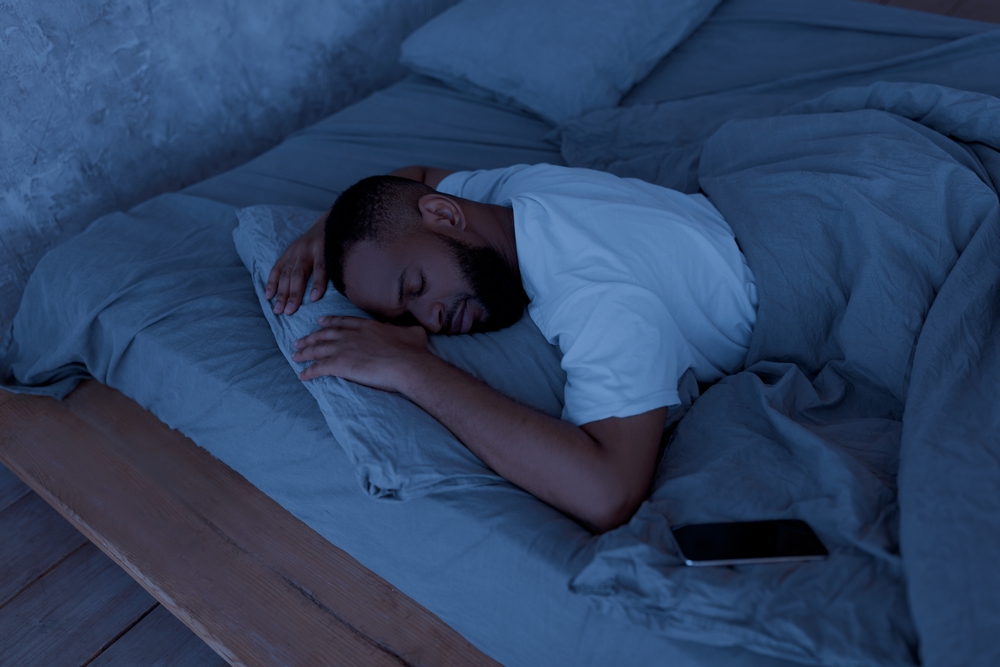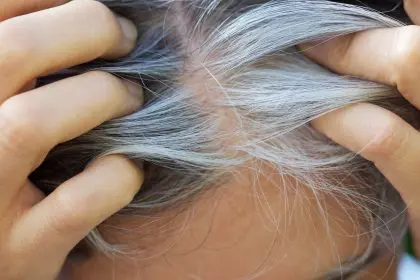Waking up drenched in sweat can be unsettling, but night sweats are more than just a nighttime nuisance. While sweating is your body’s natural way of cooling down, excessive perspiration during sleep can signal deeper health issues that deserve your attention.
Your body is essentially sending you a message through these uncomfortable episodes, and learning to decode what night sweats are telling you about your body could help you catch potential problems early.
Your hormones are out of balance
Hormonal fluctuations are one of the most common reasons for night sweats. For women, this is particularly evident during menopause, pregnancy, or menstruation. The fluctuations in estrogen levels can cause hot flashes, which often lead to excessive sweating at night.
Men can also experience hormonal imbalances, particularly with testosterone levels, leading to night sweats. These hormonal night sweats are typically accompanied by other symptoms like mood swings, irritability, and sleep disturbances that can profoundly affect your daily life.
If you’re experiencing night sweats along with other hormonal symptoms, it’s worth discussing hormone testing with your healthcare provider to get a clearer picture of what’s happening inside your body.
Your medications might be the culprit
Certain medications and supplements can trigger night sweats as a side effect. Antidepressants are particularly notorious for causing sweating, but other medications for diabetes, blood pressure, and cancer can also contribute to this problem.
If you notice a correlation between starting a new medication and the onset of night sweats, don’t ignore it. Your body is telling you that something has changed in your system, and your healthcare provider may need to adjust your dosage or suggest an alternative treatment.
This is especially important because some people suffer needlessly with night sweats when a simple medication adjustment could solve the problem entirely.
Your body is fighting an infection
Infections and illnesses are another significant cause of night sweats. Conditions like tuberculosis, HIV, and bacterial infections often present night sweats as an early symptom. Even common illnesses like the flu or cold can lead to excessive sweating during sleep as your body fights off the infection.
In some cases, night sweats can be a sign of more serious conditions, such as cancer. Lymphoma, for instance, is often associated with night sweats. If your night sweats are persistent and accompanied by other symptoms like unexplained weight loss or fever, it’s crucial to seek medical attention.
Your immune system works harder at night, and night sweats can be a sign that it’s working overtime to protect you from something more serious.
Stress and anxiety are taking a toll
Your mental and emotional state can also play a significant role in causing night sweats. Stress and anxiety trigger the release of stress hormones like adrenaline, which can lead to an increase in body temperature and subsequent sweating.
This type of night sweat is often accompanied by nightmares, increased heart rate, and feelings of panic. Your body is essentially in fight-or-flight mode, even while you’re trying to sleep.
Addressing the root causes of your stress or anxiety through therapy, meditation, or lifestyle changes can help reduce the frequency and intensity of night sweats while improving your overall well-being.
Your sleep environment needs attention
Sometimes, what night sweats are telling you about your body is that your sleep environment isn’t supporting quality rest. A room that’s too warm, heavy bedding, or wearing too many layers can all lead to overheating during sleep.
Additionally, consuming spicy foods or caffeine before bed can increase your body temperature, leading to night sweats. Your body is essentially telling you that it can’t regulate temperature properly in these conditions.
Making adjustments like using breathable bedding, wearing lightweight pajamas, and maintaining a cool room temperature can significantly reduce night sweats caused by external factors.
The health consequences you can’t ignore
Night sweats don’t just disrupt your sleep — they can have cascading effects on your health. Disrupted sleep patterns can lead to sleep deprivation, which impairs cognitive function, weakens your immune system, and increases your risk of chronic conditions like heart disease and diabetes.
Excessive sweating can also lead to dehydration and electrolyte imbalances, causing headaches, dizziness, and fatigue that make it difficult to function during the day. Constant exposure to sweat can irritate your skin, leading to rashes and infections.
When to take action
If night sweats persist despite making lifestyle changes, it’s time to seek professional help. Your body is trying to tell you something important, and ignoring these signals could mean missing early warning signs of serious health conditions.
A healthcare provider can evaluate your symptoms, perform necessary tests, and provide guidance on managing night sweats effectively. Early detection and treatment can make a significant difference in your health outcomes.
Bottom line? Night sweats are your body’s way of communicating that something needs attention. Whether it’s hormonal changes, medication side effects, infections, stress, or environmental factors, these midnight wake-up calls deserve your attention. Listen to what your body is telling you and take action to address the underlying cause.
















